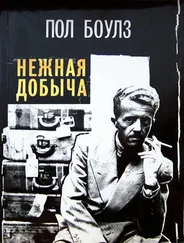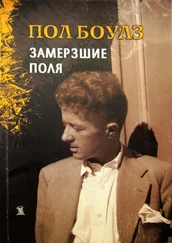Пол Боулз - Let it come down
Здесь есть возможность читать онлайн «Пол Боулз - Let it come down» весь текст электронной книги совершенно бесплатно (целиком полную версию без сокращений). В некоторых случаях можно слушать аудио, скачать через торрент в формате fb2 и присутствует краткое содержание. ISBN: , Жанр: Современная проза, на английском языке. Описание произведения, (предисловие) а так же отзывы посетителей доступны на портале библиотеки ЛибКат.
- Название:Let it come down
- Автор:
- Жанр:
- Год:неизвестен
- ISBN:1-931082-19-7
- Рейтинг книги:5 / 5. Голосов: 1
-
Избранное:Добавить в избранное
- Отзывы:
-
Ваша оценка:
- 100
- 1
- 2
- 3
- 4
- 5
Let it come down: краткое содержание, описание и аннотация
Предлагаем к чтению аннотацию, описание, краткое содержание или предисловие (зависит от того, что написал сам автор книги «Let it come down»). Если вы не нашли необходимую информацию о книге — напишите в комментариях, мы постараемся отыскать её.
Let it come down — читать онлайн бесплатно полную книгу (весь текст) целиком
Ниже представлен текст книги, разбитый по страницам. Система сохранения места последней прочитанной страницы, позволяет с удобством читать онлайн бесплатно книгу «Let it come down», без необходимости каждый раз заново искать на чём Вы остановились. Поставьте закладку, и сможете в любой момент перейти на страницу, на которой закончили чтение.
Интервал:
Закладка:
«Not too many worries, I hope?»
Ramlal smiled even more widely. «Oh, no, sir».
«That’s good,» grunted Mr. Ashcombe-Danvers. «Well, look after yourself, Ramlal. See you when I get back». Ramlal and Dyar shook hands again and they went out.
«Now if you’ll come along with me to the Café España I’ll present you to Benzekri».
Dyar looked at his watch. «I’m afraid I’ve got to get back to the office». It was twilight, and raining lightly. The narrow street was packed with people wearing djellabas, raincoats, turkish towels, overalls, blankets and rags.
«Nonsense,» said Mr. Ashcombe-Danvers sharply. «You’ve got to meet Benzekri. Come along. It’s essential».
«Well, since I’m your secretary,» Dyar smiled.
«In this matter you are». Mr. Ashcombe-Danvers walked as close to Dyar as he could, speaking directly into his ear. «Benzekri is with the Crédit Fonder here. I’ll show you the entrance as we go by it in a moment». They had come out into the Zoco Chico, filled with the drone of a thousand male voices. This evening there was electricity and the cafés were resplendent.
Working their way among the clusters of men standing engaged in conversation, they crossed slowly to the lower end of the square. «There’s the entrance,» said Mr. Ashcome-Danvers, pointing at a high portal of iron grillework that stood at the top of a few steps in a niche. «That’s the Crédit Fonder and that’s where you’ll take the packet. You’ll just ask for Mr. Benzekri and go upstairs to his office. And here’s the Café España».
Mr. Benzekri was there, sitting alone at one end of the terrace. He had a head like an egg — quite bald — and a face like a worried hawk. He did not smile when he shook hands with Dyar; the lines in his forehead merely deepened. «You will have a beer?» he inquired. His accent was thick.
«We’ll sit for a moment. I’ll not take anything,» said Mr. Ashcombe-Danvers. They sat down. «None for me, either,» Dyar said. He was not feeling too well, and he wanted a whiskey.
«Mr. Dyar will be bringing you a little present one of these days,» said Mr. Ashcombe-Danvers. «He understands that he’s to give it to no one but you».
Mr. Benzekri nodded gravely, staring down into his glass of beer. Then he lifted his head and looked sadly at Dyar for a moment. «Good,» he said, as if there the matter ended.
«I know you are in a hurry,» said Mr. Ashcombe-Danvers to Dyar. «So if you’d like to go on about your affairs go along. And many thanks. I shall be back in a few weeks».
Dyar said good evening. He had to fight his way across the Zoco Chico and up the narrow street; everyone was moving against him. «My new station in life: messenger-boy,» he thought with a wry inner smile. He did not particularly like Mr. Ashcombe-Danvers: he had behaved exactly as though he had been paying him for his services. Not that he had expected payment, but still, the principal reason a man does not want to be paid for such things is to avoid being put into the position of an inferior. And he was in it anyway.
Wilcox was impatient when he got back to the office. «Took you long enough,» he said.
«I know. He made me go on with him and meet some other guy from the bank».
«Benzekri».
«Yes».
«You didn’t have to meet him. Ashcombe-Danvers is a fussy old buzzard. Be sure the window’s shut, the door’s locked and the lights are off. Stick around until six-thirty». Wilcox put on his coat. «Come by the Atlantide in the morning about nine and I’ll give you the address where they’re making the keys. If anyone calls tell ’em I had to go out and to call back tomorrow. See you».
VII
The door closed. Dyar sat looking around the room. He stood up and studied the maps a while, searched in the waiting room for magazines, and rinding none, went and sat down again at the desk. A wild impatience kept him from feeling really alone in the room, an impatience merely to be out of it. «This isn’t it,» he told himself mechanically; he was not really sitting alone in the room because he did not believe he would ever work there. He was unable to visualize himself sitting day after day in this unventilated little box pretending to look after a non-existent business. In New York he had imagined something so different that now he had quite forgotten how he had thought it would be. He asked himself whether, knowing ahead of time what it would be like, he would have wanted to come, and he decided he would have, anyway, in spite of the profound apathy the idea of the job induced in him. Besides, the job was too chimerical and absurd to last. When it stopped, he would be free. He snorted, faintly. Free, with probably a hundred dollars between him and starvation. It was not a pleasant thought: it made him feel tense all over. He listened. Above the noise made by the automobile horns outside was the soft sound of rain falling.
He looked in the top drawer for a sheet of stationery, found it, and began to type a letter. The paper was headed EUROPE-AFRICA TOURIST SERVICE. «Dear Mother: Just a note. Arrived safely last night». He felt like adding: it seems like a month, but she would misunderstand, would think he was not happy. «The trip over was fine. We had fairly smooth weather all the way and I was not sick at all in spite of all you said. The Italians were not too bad». His parents had come to see him off, and had been upset to discover that he was to share a cabin with two Italians. «As you can see, I am writing this from the office. Jack Wilcox has gone for the day and I am in charge». He pondered a moment, wondering if the expression «in charge» looked silly, and decided to leave it. «I hope you’re not going to worry about me, because there is no reason to. The climate is not tropical at all. In fact, it is quite chilly. The town seems to be clean, although not very modern». He ceased typing and gazed at a map of Africa in front of him, thinking of the crazy climb up through the dark alleys with the Arab, on the way to the bar. Then he saw Hadija’s face, and frowned. He could not allow himself to think of her while he was writing his mother; there was a terrible disloyalty in that. But the memory, along with others more vivid, persisted. He leaned back in his chair and smoked a cigarette, wondering whether or not he would be able to find the bar by himself, in case he wanted to go back. Even if he were able, he felt it would be a bad idea. He had a date to meet Hadija in the Parque Espinel Sunday morning and it would be best to leave it at that; she might resent his trying to see her before then. He abandoned the attempt to write his letter, removed the paper from the machine, folded it and put it into his pocket to be continued the next day. The telephone rang. An Englishwoman was not interested in whether Mr. Wilcox was in or out, wanted a reservation made, single with bath, at the Hotel Balima in Rabat for the fourteenth through the seventeenth. She also wanted a round-trip plane passage, but she dared say that could be had later. The room however must be reserved immediately and she was counting on it. When she had hung up he wrote it all down and began studying a sheaf of papers marked Hotels — French Zone . At six-ten the telephone rang again. It was Wilcox. «Checking up on me,» Dyar thought with resentment as he heard his voice. He wanted to know if anyone had stopped in. «No,» said Dyar. «Well, that’s all I wanted». He sounded relieved. Dyar told him about the Englishwoman. «I’ll take care of that tomorrow. You might as well close up now. It’s ten after six». He hesitated. «In fact, I wish you would. As soon as you can. Just be sure the catch is on the door».
«Right».
«Good night».
«What gives? What gives?» he murmured aloud as he slipped into his raincoat. He turned off the lights and stepped out into the corridor, shut the door and tried it vigorously.
Читать дальшеИнтервал:
Закладка:
Похожие книги на «Let it come down»
Представляем Вашему вниманию похожие книги на «Let it come down» списком для выбора. Мы отобрали схожую по названию и смыслу литературу в надежде предоставить читателям больше вариантов отыскать новые, интересные, ещё непрочитанные произведения.
Обсуждение, отзывы о книге «Let it come down» и просто собственные мнения читателей. Оставьте ваши комментарии, напишите, что Вы думаете о произведении, его смысле или главных героях. Укажите что конкретно понравилось, а что нет, и почему Вы так считаете.









